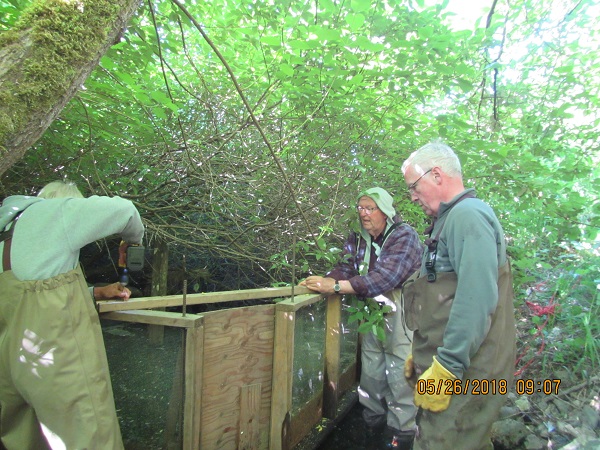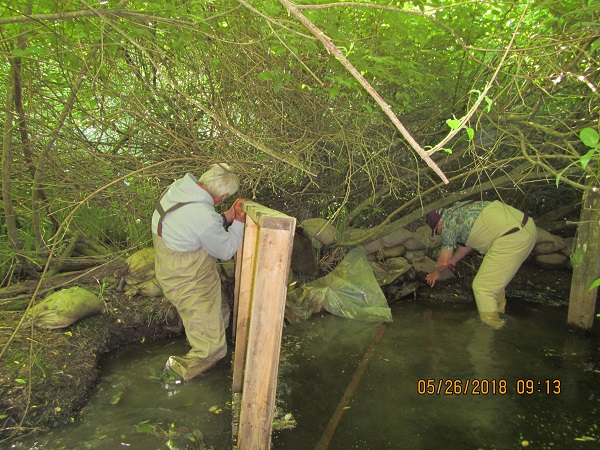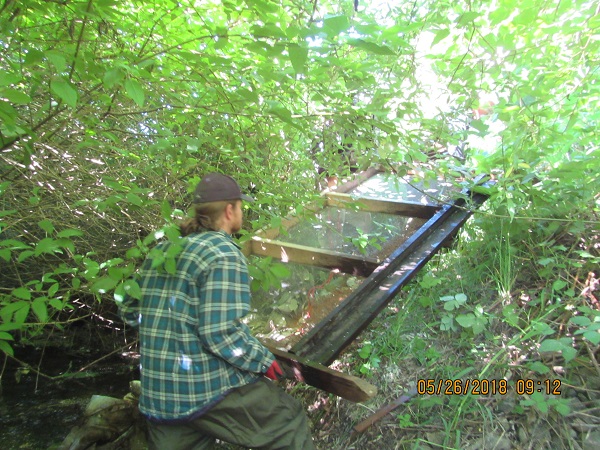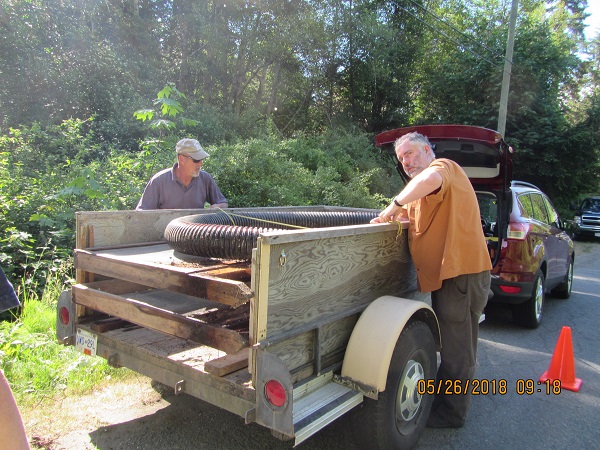An Exciting Season of Smolt Counting Comes to an End
Just like that song by Andrea Bocelli, it's "Time to Say Goodbye".....to the smolt trap for another year. On May 26, volunteers arrived with electric drills, trucks and a trailer to dismantle and take away the smolt trap that had been installed in Shelly Creek on March 23.
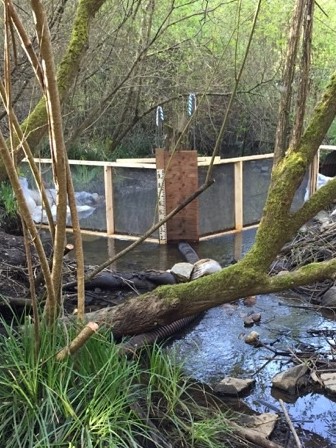
The past two months have been very eventful, with a mischievious otter stealing fish out of the smolt box for two days, a few lamprey eels (blech!), and a smart phone that spent a day swimming with the fish at the bottom of the box and kept right on ticking (it even gave the owner a message that moisture was detected....smart). And we had a visit by a reporter from the PQB News. You can view the newspaper article and video here.
This year's Coho smolt count was the best in 5 years. We counted 6963 Coho smolts and fry, and with the approximately 400 that the otter ate, we estimate there were 7363 smolts and fry in the migration out of Shelly Creek into the Englishman River, with the smolts continuing on to the ocean. We also counted the most trout ever for the smolt trap: 296 of which 51 were identified as Cutthroat.
How does this compare to other years?
|
YEAR |
NUMBER OF SMOLTS |
NUMBER OF TROUT |
|
2011 |
2638 |
37 |
|
2012 |
8094 |
42 |
|
2013 |
7265 |
21 |
|
2015 |
1247 |
0 |
|
2016 |
4313 |
60 |
|
2017 |
755 |
153 |
|
2018 |
7363 |
296 |
2017 had very low smolt numbers because an extremely wet spring caused the creek level to rise high enough to bypass the trap. Depsite the bypass, we still captured the most trout since the smolt trap count was initiated in 2011. We think the reason for the increase in trout in 2017 and 2018 may be due to the removal of yellow iris (an invasive species) which had taken up a great deal of habitat space in Martindale Pond. With the iris gone, the amount of open water habitat has increased significantly.
Many thanks to our volunteers for making 2018 the best year yet for the smolt trap count!
